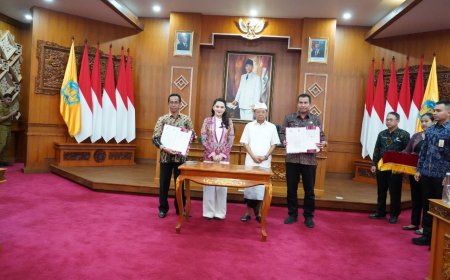A Major Transformation in the Ministry of Finance: Technology and Intelligence at the Forefront
President Prabowo Subianto has made a bold move in governance by significantly reshaping the structure of Indonesia's Ministry of Finance. This step is outlined in Presidential Regulation Number 158 of 2024, which came into effect on November 5, 2024. Behind this major decision lies a vision for modernization and efficiency, positioning technology and intelligence as the spearhead of national financial management.

One of the most noticeable changes is the formation of the Financial Technology, Information, and Intelligence Agency. This agency symbolizes the digital transformation championed by Prabowo, as well as a strategic effort to integrate modern technology into the management of state finances. The agency has a large mandate, ranging from managing information technology and communication to utilizing financial data and intelligence to support more precise economic policies. Led by a Chief, this agency operates directly under the supervision of the Minister of Finance, highlighting the importance of its role in this new structure.
The creation of this agency is not merely an addition to the bureaucratic structure. The regulation states that the agency's responsibilities include formulating technical policies, designing digital transformation programs, and monitoring the implementation and effectiveness of technology management in the financial sector. With this function, the government hopes to create a financial system that is more adaptive, resilient, and responsive to global changes.
However, the reforms do not stop there. President Prabowo has also established two new directorates general: the Directorate General of Economic and Fiscal Strategy and the Directorate General of Stability and Development of the Financial Sector. These directorates are designed to address increasingly complex economic challenges, ensure more targeted fiscal strategies, and strengthen the stability of the financial sector.
As part of this overhaul, the President has also made the bold decision to dissolve the Fiscal Policy Agency (BKF), which was previously one of the Ministry of Finance's strategic institutions. The functions of the BKF have now been integrated into the Directorate General of Economic and Fiscal Strategy. According to Deni Surjantoro, Head of the Ministry of Finance's Communication and Information Services Bureau, this move aims to unite strengths and enhance coordination in formulating economic and fiscal policies.
This major transformation reflects Prabowo Subianto's vision for leading the government. By leveraging technology as a primary tool, he aims to ensure that state financial management is not only efficient but also capable of facing future challenges. This move demonstrates his commitment to building a system that is more modern, transparent, and data-driven. Furthermore, he seeks to ensure that every element of the government structure plays a strategic role in supporting sustainable economic growth.
With these significant changes, the Ministry of Finance has now become a leaner institution, but one that is stronger and more focused on its core tasks. The Financial Technology, Information, and Intelligence Agency emerges as the pioneer of a new era in the management of state finances, bringing hope for a more advanced, adaptive system that is ready to compete globally. This restructuring is not just a reshuffle, but a concrete step towards a more modern and progressive financial future.
By: Ngurah Sigit.
The Author is: Sociologist, Cultural Observer, and Media Analyst.
What's Your Reaction?

























































